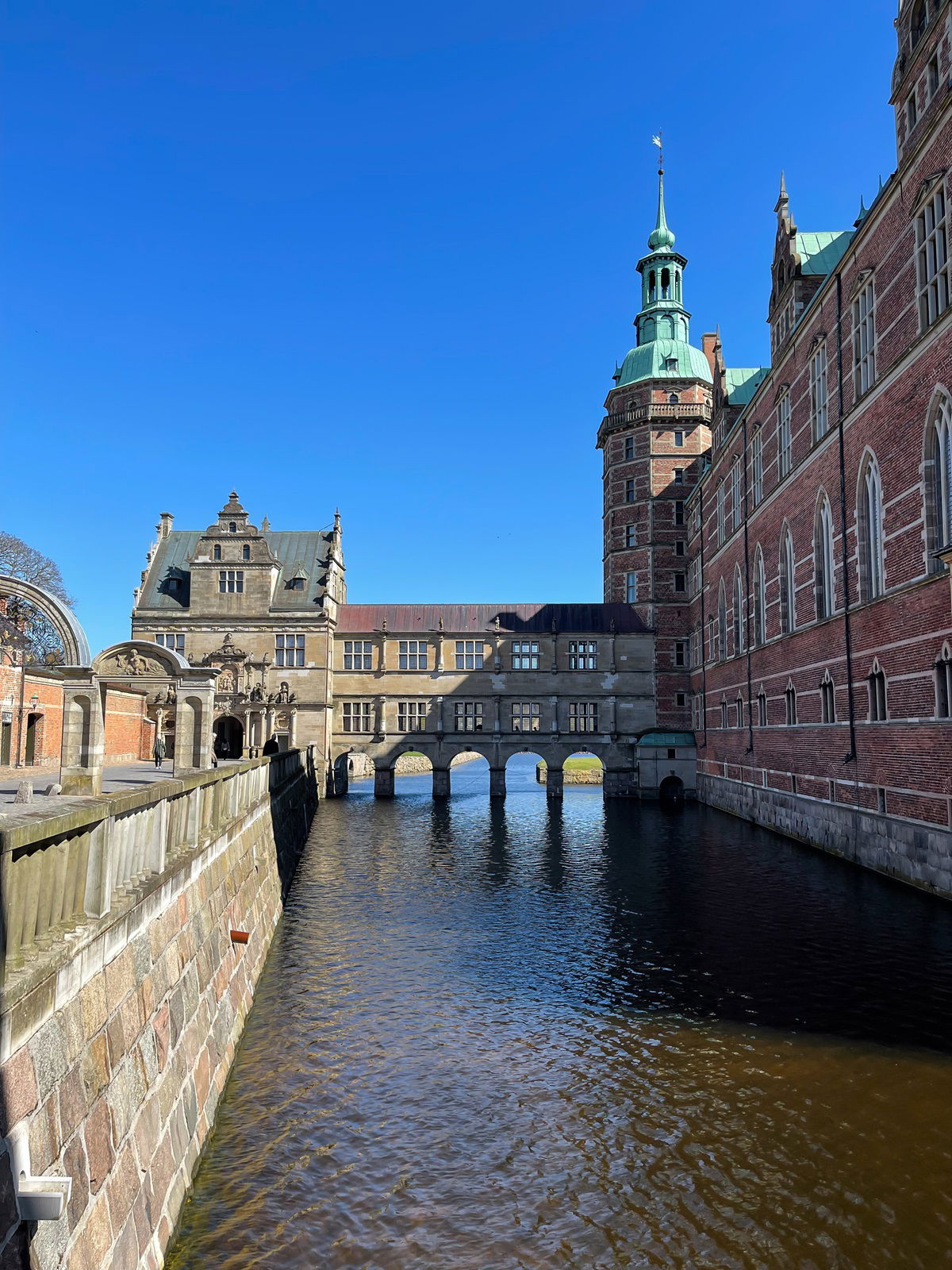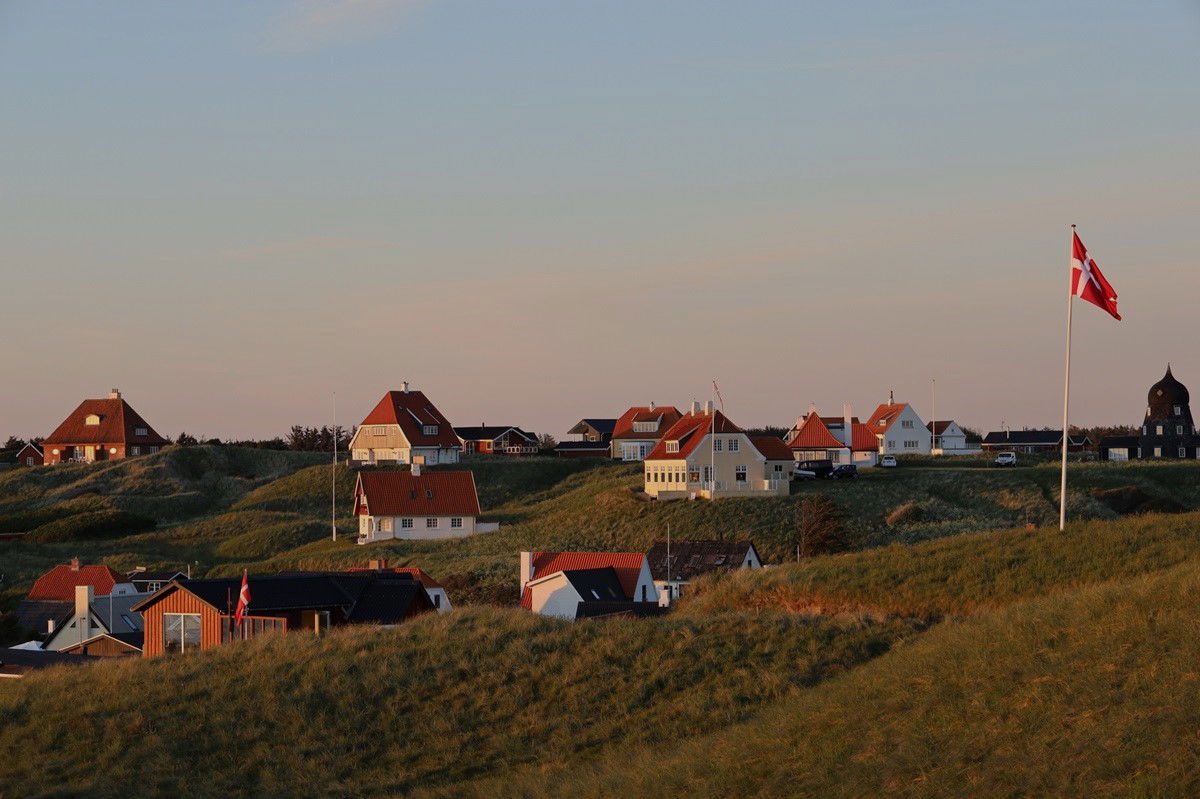
Emigrating to Denmark
Denmark is one of the happiest countries in the world! And its proximity to Germany makes it attractive to German emigrants. Are you thinking about moving to Denmark and experiencing that hygge feeling first hand? Read on to find out what to consider when emigrating to Denmark, including cost of living, healthcare, and job prospects. Time to start your new adventure!
Why emigrate to Denmark?
Do you dream of moving to Denmark? Then you already know why – but we still wanted to share a few more reasons with you:
Denmark is known for its high quality of life. According to the World Happiness Report, the Danes are among the happiest people in the world. Why is that? The Danish people are generally open and friendly. And their hygge lifestyle might have something to do with this! The Danish word hygge roughly translates to cosiness and describes that comforting feeling of experiencing the simple yet beautiful things in life with your loved ones. Hygge is an essential part of life in Denmark. For instance, working overtime is frowned upon. A good work-life balance is important to the Danish people. Being cosy and enjoying a sense of balance seems to impact the locals’ happiness levels.
Another great reason to emigrate to Denmark is the country’s attitude towards sustainability and climate protection. Aiming to be climate-neutral by 2050, Denmark is a true pioneer when it comes to climate and nature conservation. Recycling and deposit systems (an incentive for returning used bottles in exchange for a small percentage of their value) have been common practice for years. Denmark has also been working on innovative projects. Especially Copenhagen stands out for its extraordinary work in protecting our climate, including running farms on high-rise rooftops, beekeeping in the middle of the city centre, and building ski slopes on top of waste incineration plants. Denmark also has a well-developed cycle network.
Another reason you may want to move to Denmark is its proximity to Germany and other European countries. Especially for those living in the north of Germany, Denmark is still quite close, allowing for regular visits by car, bus or train to see friends and family in Germany.
Emigrating to Denmark: Requirements
Because Denmark is a member of the European Union, EU citizens are free to move around the country. Emigrating is quite easy and does not require a visa.
If you want to stay in Denmark for longer periods, you need to register with Denmark’s National Register (Folkeregister) within three months. You must also apply for a CPR number. This is a personal identification number that you need for your health insurance, your tax card, and things like opening a bank account.
Living in Denmark
The cost of living in Denmark is relatively high, but wages and salaries are also higher than they are in Germany, for instance. Rent prices are about the same, but utility costs are lower.
The Danish healthcare system is very fair and well organised. There is no distinction between private and statutory health insurance; everyone has the same basic coverage. Private health insurance is only available for optional health services not covered by statutory health insurance. Health insurance in Denmark covers about the same as it does in Germany: general and specialist medical examinations, hospital stays, most medication, and dental care up to the age of 18. Your general physician in Denmark will refer you to specialists as needed. Nowadays, Denmark has several clinic centres rather than many individual hospitals. There are also outpatient clinics for less urgent treatments.
Denmark is very innovative and progressive when it comes to healthcare. As such, it offers an “e-health” service, the Danish electronic patient file. It gives doctors across all healthcare facilities necessary access to their patients’ medical data. This results in better connectivity, which can save lives in case of an emergency.






Finding a place to live & buying a house in Denmark
Wanting to live in Denmark means having to deal with local rent prices or buying real estate. Rent in Denmark is roughly the same as in Germany, with it being generally higher in urban areas and lower in the countryside.
Real estate prices in Denmark have gone up quite a lot in recent years. If you are looking to buy a house in Denmark, you can expect to pay a lot less in rural areas versus in cities. House prices start at around 120,000 euros. You can expect to pay around 800,000 euros in the greater Copenhagen area. As soon as you have declared your primary residence in Denmark, you can buy a property without any restrictions or special requirements.
Education system in Denmark
Are you planning to move to Denmark with your family? Then you might like to learn about the local school system.
In Denmark, education is mandatory for ten years, but mandatory education is different from mandatory schooling. Parents are free to decide whether their children get their education at school or elsewhere (which only one percent of Danes take advantage of).
All children start at level 0, a compulsory year in kindergarten. After that comes the Folkeskole. This is a community school that all children go to for nine years. They can then decide if they want to go to a so-called Efterskole for another year. This is a boarding school that you have to fund out of pocket, but it is affordable enough to make it accessible to everyone. Efterskole is where school students are prepared for Gymnasium (secondary school). Students can choose to skip the Efterskole and go straight from Folkeskole to Gymnasium for three more years. At Gymnasium, they can choose their learning path.
The Danish school system cares about the development of young people. Especially Gymnasium focuses on teaching independence. Students only take one or more major tests at the end of each school year. Throughout the semester, teachers assess their students’ performance through non-graded homework assignments with deadlines.
Denmark is very progressive in many ways, such as digitalisation, which has become the standard in Danish schools. Pen and paper are rarely used anymore, especially in the upper levels. Everything exists in digital form nowadays, including homework, timetables, and teaching materials.
Working in Denmark
Working life in Denmark is quite different from working life in Germany. For instance, working overtime in Denmark is frowned upon. Danes care about a good work-life balance. A full-time work week is usually around 37 hours. Depending on your professional field, you can even work flexible hours. You also get five weeks’ paid leave per year.
The following work sectors are in particularly high demand in Denmark: healthcare, IT and software development, skilled trades, education, engineering, and the green sector.
Finding & applying for a job
To find a job in Denmark, your best bet is to start looking and applying before moving there. This will allow you to start your new life in Denmark from a more secure place. You will need to present a permanent employment contract when you register in Denmark, i.e., within the first three months of your arrival.
Have a look at these job portals to find a job in Denmark:
Once you have found a suitable job, you can start getting your application ready. Your job application should be in Danish. In most cases, you can hand in your application in English (sometimes even in German). You will need the following documents to apply for a job in Denmark:
- Cover letter: There are no specific requirements for your cover letter, but you may want to let your future employer know about your reasons for moving to Denmark.
- Resume/CV: Your CV should be in reverse chronological order, and you are not required to include a headshot.
- References: References matter a lot in Denmark. State the name, position, and contact details of your former employers at the end of your CV. References are usually not required, at least not in the beginning. Only include them if the job ad says so. You may need to submit your certificates later, in which case, you should have them translated into Danish.
Checklist: Emigrating to Denmark
Are you ready to emigrate to Denmark? Have a look at our checklist to help you cover your bases:
- Look for a place to live: Start looking for accommodation before moving to Denmark. This could even be a temporary Airbnb. Do what you can before emigrating to make the time after your arrival a little less stressful.
- Prepare for your relocation: Get ready for your big move! You can either hire a moving company or rent a van and do it yourself. It might make sense for you to set up a redirection order so your mail will be forwarded to your new address in Denmark. If you are currently based in Germany, you can do this online at Deutsche Post.
- Cancel your previous address: Ready to go? Remember to cancel your previous place of residence as needed. This is according to the German registration obligation mandatory.
- Register with the Folkeregister: Once you have arrived in Denmark, you need to register with the Folkeregister as soon as possible. This is so that you can apply for your CPR number. To register, you will need your ID card or passport and an employment contract.
- Apply for your CPR number: When you register with the Folkeregister, you can apply for your CPR number at the same time. You will also need to verify that you have a permanent place of residence in Denmark. Use your rental agreement as proof.
- Get your health insurance card: You will also receive your health insurance card, the so-called “det gule sundhedskort” (yellow health card) by post. You will need this for doctor and hospital visits.
- Apply for an electronic tax card: To avoid paying too much tax in Denmark, you need a Danish tax card. Apply for yours at the Customs and Tax Administration (SKAT) as soon as possible. To do so, you will need your ID or passport and your employment contract. If you are married, you will also need to present your marriage licence.
- Set up your e-boks and MitID: Danish authorities send almost everything out electronically now using an electronic inbox called e-boks. You should also set up a so-called MitID, which you will use for identification purposes. You can use your MitID for your e-boks, digital signatures, or your online banking account.
- Open a bank account: If you work in Denmark, you should also have a Danish bank account. Choose a bank that suits your needs. Many of them have English-speaking employees. You will need the following documents to open a bank account in Denmark: your ID or passport, your CPR number, proof of residence (e.g., your rental agreement), and your employment contract.
- Learn Danish: Last but not least, you should learn the Danish language. Even though many people in Denmark speak English and many even speak German, you will master everyday life and work situations much better if you speak Danish.
Key data for Denmark
Population: 5.9 million
Size: 42,952 square kilometres
Capital: Copenhagen
Provinces: Nordjylland, Midtjylland, Syddanmark, Hovedstaden, Sjælland
Currency: Danish Krone
Units of measurement: metric system (kilometres, metres, centimetres, etc.)
Official language: Danish
Road traffic: Right-hand traffic
German Embassy: Copenhagen
Climate: moderate
FAQs: Emigrating to Denmark
Yes, you can work in Denmark as a German and EU citizen. You will need to register your main residence in Denmark within three months of moving to Denmark. As part of your registration process, you will also receive your CPR number and everything else you need to live and work in Denmark.
In principle, yes. You can buy a house in Denmark if you also live there. If you want to buy a house in Denmark but continue to live in Germany, you will need a special permit, which only the Danish Ministry of Justice can issue.
Yes, Denmark offers a high quality of life. For instance, it puts a lot of work into sustainability and innovation towards climate protection. The Danish people also care about a good work-life balance. As such, working overtime in Denmark is frowned upon. The Danes are known for their warmth and taking things easy as part of their cosy hygge lifestyle. If you are an EU citizen, you can emigrate to Denmark. All you have to do is register your new address in Denmark within three months of your arrival.
Yes, you can live in Denmark as a German citizen. All you have to do is register your new address in Denmark within three months of your arrival.




